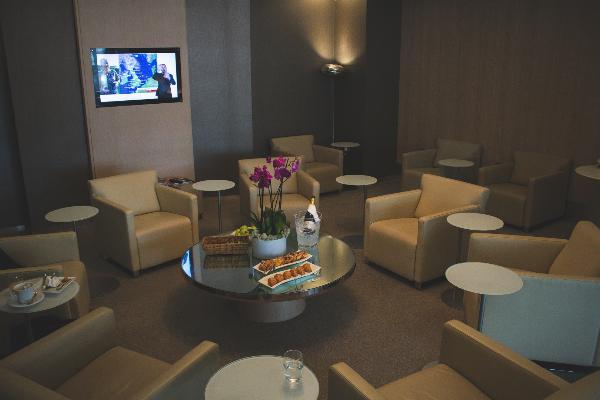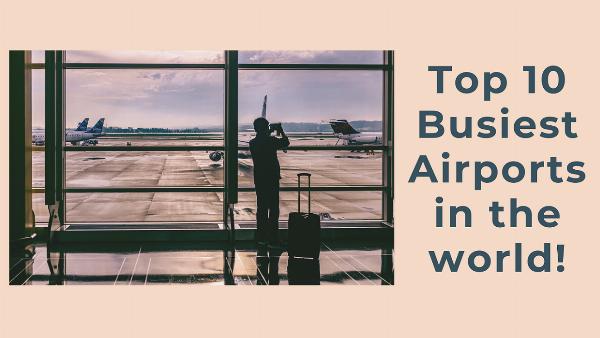 Lifetime Link Placements – No Expiry. 100% Index Guarantee!
Lifetime Link Placements – No Expiry. 100% Index Guarantee!
The scientific reasons why you get tired in a flight
Written by Maujitrip » Updated on: June 17th, 2025

Traveling by air has revolutionized the way we explore the world. It's faster, more convenient, and connects people across the globe. One may imagine a comfortable ride on a flight while making an online flight ticket booking. But travelers may feel tired. However, there's a downside to flying that many passengers are familiar with - the overwhelming fatigue that often follows a flight. Whether you're taking a short domestic hop or embarking on a long-haul international journey, the feeling of exhaustion after a flight can be quite perplexing. In this blog, we'll delve into the various reasons why flying makes you tired and explore strategies to combat this travel-induced fatigue.
Jet Lag
One of the primary culprits behind post-flight tiredness is jet lag. When you cross multiple time zones during a flight, your body's internal clock, or circadian rhythm, is disrupted. This disruption leads to a misalignment between your body's internal clock and the local time at your destination. As a result, you may experience sleep disturbances, daytime drowsiness, and a general feeling of fatigue.
Jet lag affects individuals differently, and the severity can depend on factors like the number of time zones crossed and the direction of travel. To minimize the impact of jet lag, try gradually adjusting your sleep schedule a few days before your flight, staying hydrated, and exposing yourself to natural light at your destination.
Cabin Pressure and Humidity
Airplanes are pressurized to maintain a breathable atmosphere for passengers at cruising altitudes. However, the cabin pressure inside an aircraft is significantly lower than at sea level. This reduced pressure can lead to a condition known as hypoxia, where the body receives less oxygen. The lower oxygen levels can result in fatigue, dizziness, and even cognitive impairment.
Furthermore, the low humidity in the cabin air can contribute to dehydration. Dehydration, even in small amounts, can leave you feeling tired and sluggish. To counteract the effects of cabin pressure and low humidity, it's essential to drink plenty of water during your flight and consider using a saline nasal spray to keep your nasal passages moist.
Disrupted Sleep Patterns
Sleeping on a plane can be challenging, especially on long-haul flights. The limited space, uncomfortable seats, and constant noise can make it difficult to get quality rest. Even if you manage to doze off, the sleep you get may be fragmented and of lower quality than your usual slumber.
Disrupted sleep patterns during a flight can lead to grogginess and fatigue upon arrival. To mitigate this, consider using noise-canceling headphones, bringing a travel pillow for neck support, and wearing an eye mask to block out light. Additionally, try to adjust your sleep schedule to match your destination's time zone, as mentioned earlier, to help your body adapt more easily.
Cabin Noise and Vibration
The constant background noise and vibrations on an aircraft can contribute to fatigue. While these sounds and movements are typically not loud or intense enough to cause harm, they can still disrupt your ability to relax and rest during the flight. Prolonged exposure to cabin noise and vibrations can increase stress levels and contribute to mental and physical fatigue.
To combat the effects of cabin noise and vibration, you can use noise-canceling headphones or earplugs to create a quieter environment. Wearing comfortable clothing and using a cushion or blanket to dampen vibrations can also help you relax and reduce the fatigue caused by these factors.
Limited Physical Activity
Air travel often involves long periods of sitting in a confined space. This lack of physical activity can lead to muscle stiffness, joint discomfort, and a feeling of overall physical fatigue. Additionally, sitting for extended periods can cause poor circulation, which may lead to swelling in the legs and feet.
To counteract the effects of limited physical activity during a flight, it's essential to get up and move around periodically. Simple in-seat exercises and stretches can help improve blood circulation and reduce muscle tension. Compression socks or stockings can also be beneficial in preventing leg swelling during long flights.
Air Quality
The air quality in an airplane cabin is another factor that can contribute to post-flight tiredness. The recycled air in aircraft cabins is often dry and may contain airborne particles like dust and allergens. Breathing in such air for an extended period can irritate the respiratory system and lead to fatigue.
To combat the effects of poor air quality, you can use a personal air vent to direct fresher air toward your face. Some passengers also find relief by using a saline nasal spray to keep their nasal passages moist and using a face mask to filter the air they breathe.
Conclusion
Flying is undoubtedly a convenient and efficient way to travel, but it can also leave you feeling tired and fatigued upon arrival. The reasons behind this post-flight exhaustion are multifaceted, including jet lag, cabin pressure and humidity, disrupted sleep patterns, cabin noise and vibration, limited physical activity, and air quality. However, by understanding these factors and implementing strategies to mitigate their effects, you can enjoy a more restful and energized journey. Whether you're a frequent flyer or an occasional traveler, taking steps to combat the tiredness associated with flying can make your travel experiences more enjoyable and comfortable.
Note: IndiBlogHub features both user-submitted and editorial content. We do not verify third-party contributions. Read our Disclaimer and Privacy Policyfor details.
Copyright © 2019-2025 IndiBlogHub.com. All rights reserved. Hosted on DigitalOcean for fast, reliable performance.









